This #micronutrientmonday video is about Vitamin B12
B12 is part of a group of compounds called the “cobalamins”, because they contain the element, cobalt. You might recognize the name methylcobalamin – this is a form of active vitamin B12. You might have also heard the name cyanocobalamin, this refers to a synthetic B12 that you often find in nutritional supplements or injectable B12. Now, cyanocobalamin must be converted in order to become active…so if you’re choosing a supplement I would always select a methylcobalamin version.
B12 is probably most characteristically known for it’s ability to combat fatigue, because B12 is important (like iron) for the formation of healthy red blood cells. Red blood cells carry our oxygen to all of our cells and tissues.
B12 also supports a healthy neurological system and mental health. It can be used to treat certain cases of depression and peripheral neuropathy.
B12 needs an acidic environment in order to be absorbed from the digestive system. So anyone on a proton pump inhibitor (things like Nexium or Prevacid) will be prone to B12 deficiency.
B12 is present almost exclusively in animal foods. Things like meat, poultry, fish, dairy and eggs. So vegetarians and especially vegans are also prone to deficiency.
Having your B12 tested is an easy and fairly inexpensive test, but we’re starting to understand that our current reference ranges for a healthy B12 levels might be outdated. Symptoms of depression and fatigue are detectable before anemia develops. As many people present with normal B12 levels might still show signs of B12 deficiency and might still benefit from B12 supplementation.
Signs of B12 deficiency include shortness of breath, fatigue, weakness, irritability, and sore tongue.
Thank you for listening. If you’re curious about how B12 might be involved in your health issues, feel free to contact me at drnatalieboz@gmail.com or www.healthandthecity.com.
[gravityform id=”1″ name=”Join Our Mailing List”]


